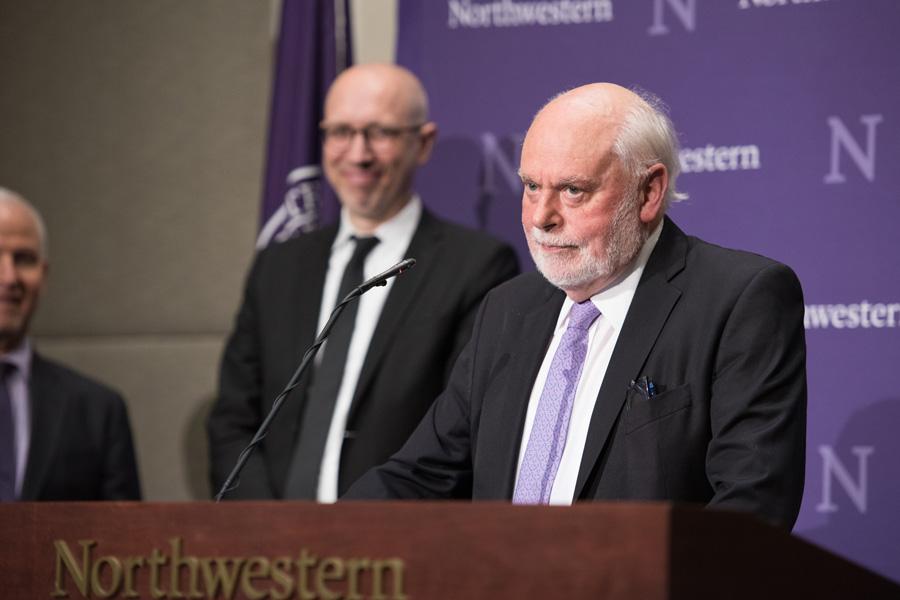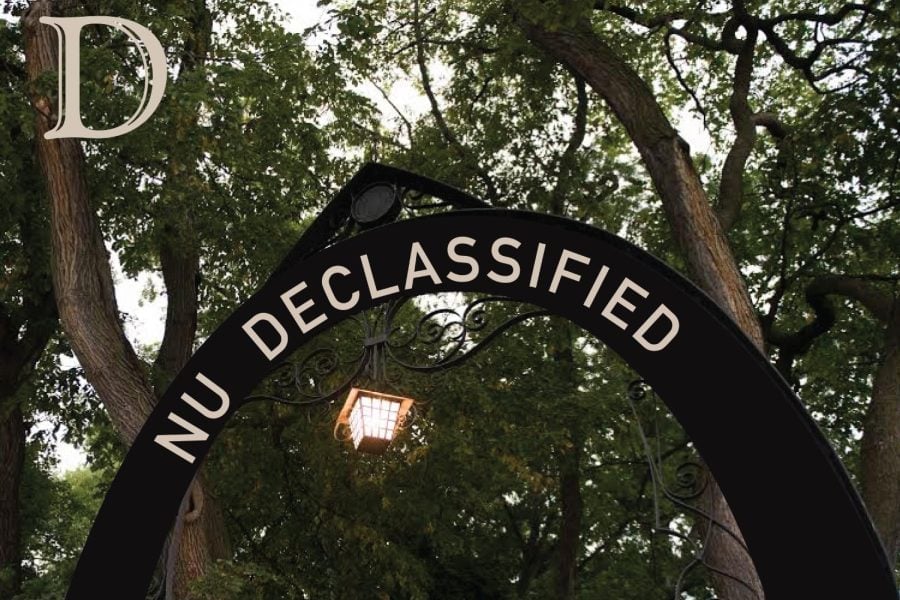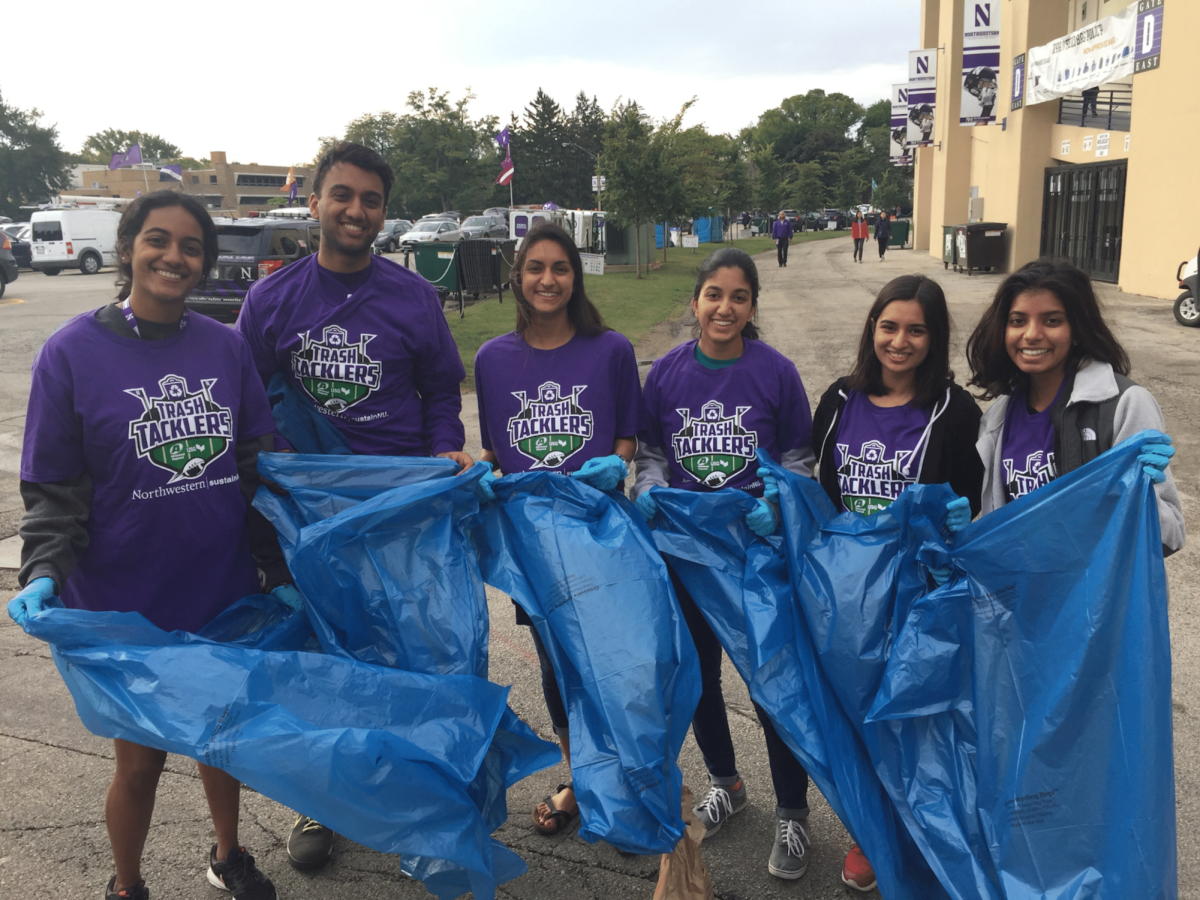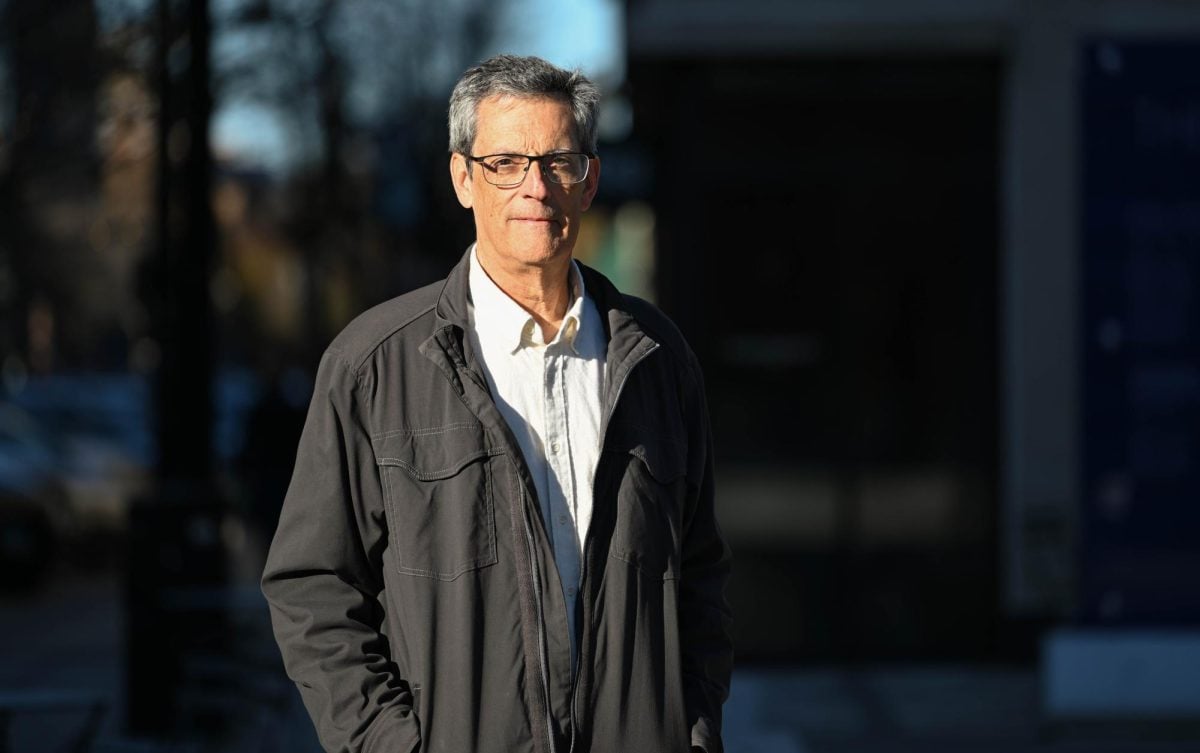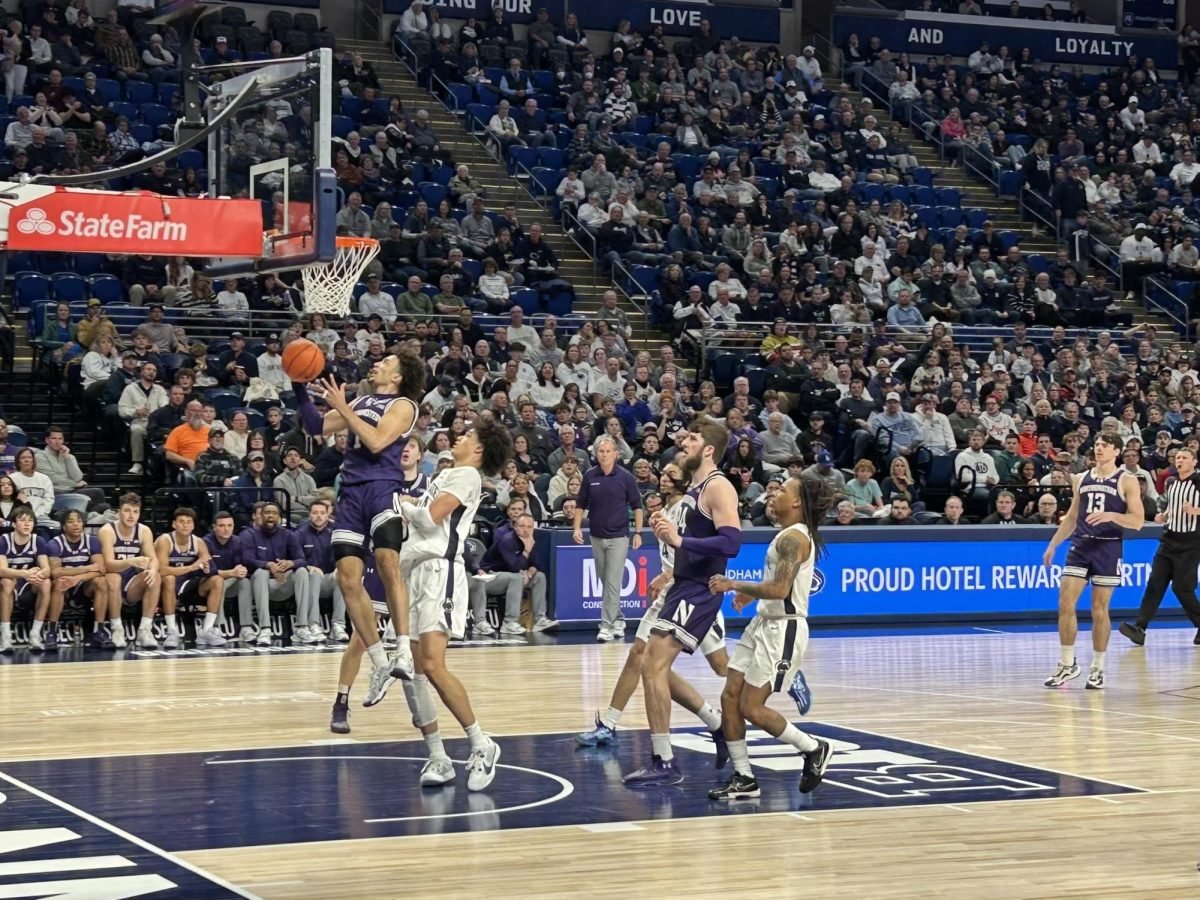Nobel laureate and Board of Trustees Professor of Chemistry Sir J. Fraser Stoddart died Dec. 30 at the age of 82, and since then, there’s been an outpouring of love for the late professor in the Northwestern community.
Stoddart was a trailblazer in the fields of nanoscience and organic chemistry. In 2016, he was awarded the Nobel Prize in Chemistry alongside Jean-Pierre Sauvage and Bernard L. Feringa for the creation of molecular machines, which introduced a new type of bond: the mechanical bond.
“Discovering new things in chemistry is not simple, discovering a whole field is that much harder,” chemistry Prof. Omar Farha said. “(Stoddart) was one of the people who discovered a new field, coming up with new ways of bonding molecules.”
Molecular machines have potential applications in biomedicine for making drugs that target diseases more effectively, and in climate change mitigation for pumping carbon dioxide out of the air, said Duke University Prof. Liang Feng who worked in Stoddart’s research group for three years.
Stoddart was born in Edinburgh, Scotland, where he grew up on a farm. He received his Bachelor’s degree and Ph.D. in chemistry from the University of Edinburgh. Stoddart was appointed a Knight Bachelor by Queen Elizabeth II for his services in chemistry and molecular nanotechnology research in 2007.
In 2007, Stoddart received the Albert Einstein World Award of Science for his work with molecular nanotechnology. The following year, he became the Board of Trustees Professor of Chemistry at Northwestern and founded the Stoddart Mechanostereochemistry Group.
“When (Stoddart) came to our department, he didn’t just come and make his lab and his group better by moving to Northwestern, he made the whole entire department better — and I would argue the whole university better — with his move,” Farha said.
Using Stoddart’s name and stature, Farha said the chemistry department recruited top-notch faculty and graduate students while improving its facilities and equipment. Stoddart played a major role in making NU one of the best chemistry departments in the country, Farha said.
During his career of teaching and research, Stoddart mentored over 500 graduate and postdoctoral students from across the world.
“He won the Nobel Prize for doing brilliant chemistry, but at the end of the day, who did that chemistry is the people who he mentored. Now imagine what those people are doing around the world,” Farha said. ”That means he impacted not just the U.S., he impacted the world.”
Stoddart welcomed students into his research group with open arms. University of Oklahoma Prof. Yuanning Feng, who is originally from China, worked with Stoddart and in his lab for seven years, first as a graduate student and then as a postdoctoral student.
Yuanning Feng (Weinberg Doctorate ’21) said Stoddart helped ease Yuanning Feng’s struggle with some of the cultural differences between China and the U.S.
“He really enjoyed talking about other topics outside of scientific research in chemistry. So as an international student at that time, I was struggling with the English language,” Yuanning Feng said. “He certainly taught me a lot about English.”
Weinberg junior Tim Li worked in Stoddart’s group for about a year. Li recalled that Stoddart had an “open office” policy.
Anyone could walk by his office and talk with him whether it was about the latest scientific discoveries or the best way to make black tea, Li said.
“He was a very approachable dude, and he didn’t like people calling him Professor Stoddart,” Li said. “He would prefer his students, his colleagues (and) collaborators to call him Fraser.”
Li said Stoddart loved to support the younger generation of chemists and give personalized advice to anyone who asked.
Due to the size of Stoddart’s research group, Liang Feng said Stoddart spent a lot of his personal time helping group members.
“He was an extremely supportive advisor who cared about the group members,” Liang Feng said. “He always asked me, ‘Are you happy here? Happy doing research here?’’’ He cared about (my) feelings and … was really willing to spend a huge amount of time (helping) the members achieve their goals.”
During Stoddart’s academic career, which spanned five decades, he published more than 1,300 scientific papers. When Stoddart joined the University of Hong Kong in 2023 as the Chair Professor of Chemistry, he donated over 400 boxes of his professional papers to the NU Archives.
The collection included materials related to his lectures, conference presentations, laboratory journals and notebooks, articles, publications and papers documenting his work with graduate and postdoctoral students in his research group.
“I think everybody remembers Fraser by being a great and an awesome scientist. I think he was just as much, if not more, an awesome human,” Farha said. “I think that’s how we should remember him as a whole, not as a scientist.”
Email: [email protected]
Related Stories:
— Company co-founded by Nobel Prize winner launches nanotechnology-based cosmetics
— Northwestern chemistry professor wins Nobel Prize
— Northwestern professor voted into National Academy of Sciences
